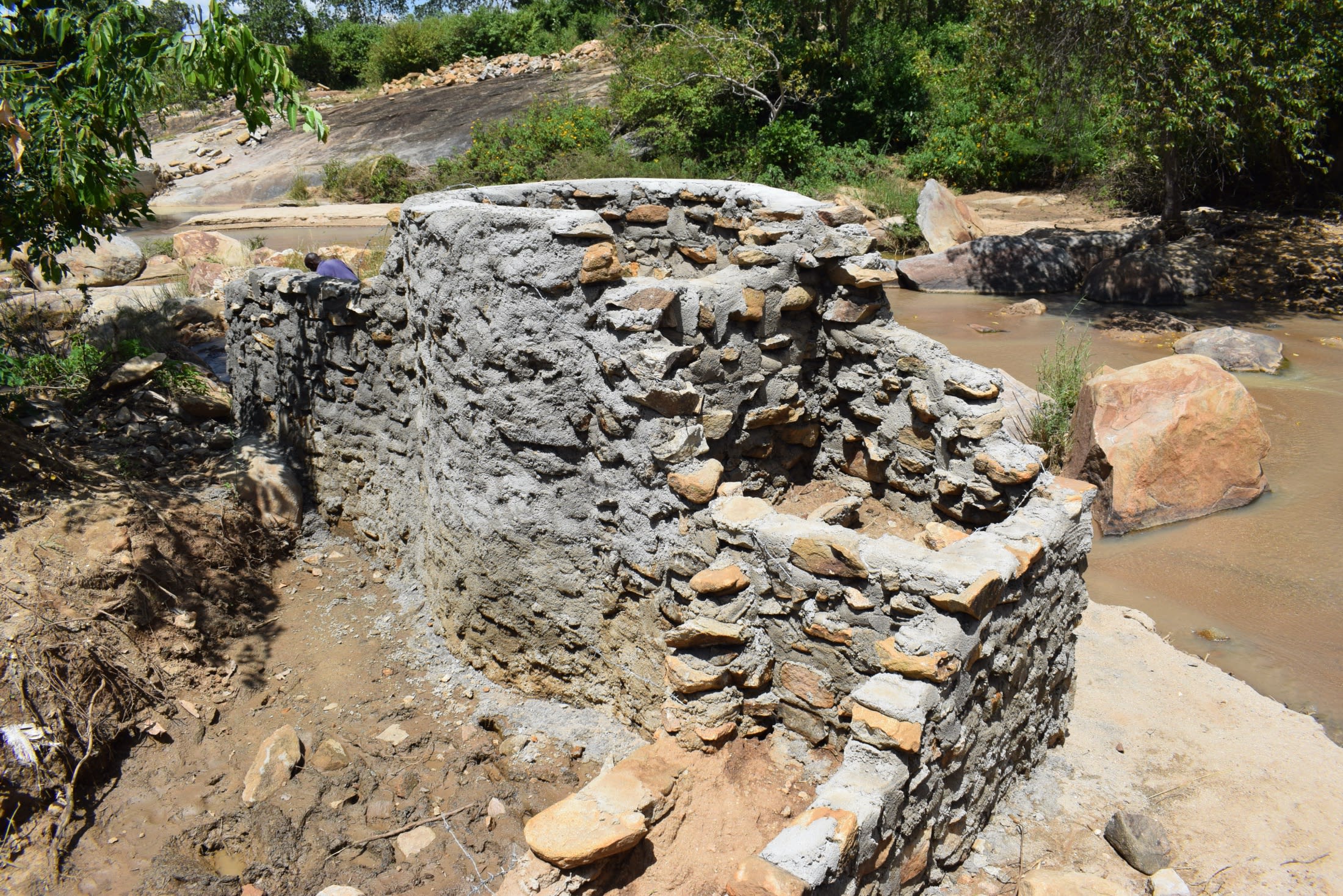Nduumoni is a rural, fairly vegetated and peaceful community in Kenya. It is sparsely populated with most houses made of bricks that are home to some 335 people.
An average day for the community members starts at the crack of dawn with women walking while carrying containers of water on their backs. All roads here lead to the Nduumoni River where the women go to fetch water for the day. The water level is usually higher in the morning compared to later in the day, hence their early arrival.
The community members suffer a lot during the dry seasons because the Nduumoni River dries up very fast and people have to dig deep scoop holes to access water. The scoop holes are usually overcrowded because the water table is so low that typically only 1 scoop hole has water at any given time.
"I am an old woman now and water scarcity affects me a lot," shared 76-year-old Rebecca Kama.
"During the dry seasons, I have to dig very deep scoop holes in order to fetch water. Often times, the water source is crowded."
Depending on the queues, the women might decide to stay and wait for their turn, or they might try leaving and coming back. If they do not return home with water early enough, however, their children go to school hungry. If they get home in time, then they can prepare their children for school and feed them breakfast.
By 7:00 am the men are up and ready to go to their farms or their other work. By around 10:00 am, the water that was fetched in the morning has ended and the women are expected to make a trip back to the river. A lot of time is expended on this duty. Once they fetch water, they perform other household duties. By evening, when everyone returns home, the women prepare supper for the family and sleep.
The next morning, the cycle continues.
"Insufficient supply of water has contributed highly to the poverty levels in the region because we are unable to farm well. We spend a lot of our finances on [medical] treatment and fetching water at times," said Bramwell Mwenzwa Muu.
"Life is hard without water."
The most common livelihood in this region is farming. Most members rely on subsistence agriculture to earn income, but these practices are highly affected by unreliable rainfall patterns and climate change. Other common jobs here include the operation of small businesses such as driving a motorcycle taxi or running a small shop. Casual labor jobs such as house construction and farm work are also typical among young adults.
Reliable Water for Nduumoni
Our main entry point into Nduumoni Community has been the Wathanaa Self-Help Group, which is comprised of households that are working together to address water and food scarcity in their region. These members will be our hands and feet in both constructing water projects and spreading the message of good hygiene and sanitation to everyone.
Hand-Dug Well
This particular hand-dug well will be built adjacent to a sand dam project, which will supply clean drinking water once it rains. We have supplied the group with the tools needed for excavation. With the guidance of our artisans and mechanics, the excavated well will be cased, sealed with a well pad, and then finished with a new AfriDev pump.
Excavation takes a month or more on average, depending on the nature of the rock beneath. Construction of the well lining and installation of the pump takes 12 days maximum. The well will be lined with a concrete wall including perforations so that once it rains, water will filter in from the sand dam.
This well will be located in Nduumoni Village and will bring clean water closer to families.
New Knowledge
These community members currently do their best to practice good hygiene and sanitation, but their severe lack of water has been a big hindrance to reaching their fullest potential.
We will hold hygiene and sanitation training sessions with the Wathanaa Self-Help Group and other community members to teach about important hygiene practices and daily habits to establish at the personal, household, and community levels. This training will help to ensure that participants have the knowledge they need to make the most out of their new water point as soon as the water is flowing.
One of the most important topics we plan to cover is the handling, storage, and treatment of water. Having a clean water source will be extremely helpful, but it is useless if water gets contaminated by the time it is consumed. We will also emphasize the importance of handwashing.
We and the community strongly believe that all of these components will work together to improve living standards here, which will help to unlock the potential for these community members to live better, healthier lives.
We typically work with self-help groups for 3 to 5 years on multiple water projects. We will conduct follow-up visits and refresher trainings during this period and remain in contact with the group after all of the projects are completed to support their efforts to improve sanitation and hygiene.



 Rehabilitation Project
Rehabilitation Project

















 We worked with the Wathanaa Self-Help Group for this project. The members and their families contributed materials and physical labor to complete the project.
We worked with the Wathanaa Self-Help Group for this project. The members and their families contributed materials and physical labor to complete the project.
















